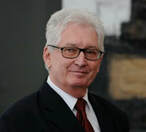
Régi dilemma és vitatéma Európában, főleg a kérdéses régióban, azaz nálunk, amely időnként újra és újra előbukkan részben szemantikai, és rendszerint terminológiai értelemben.
Ennek megfelelően számtalan problémát és kérdést vet föl, a kérdéses terület kiterjedésétől és határaitól kezdve a politikai, érzelmi és egyéb konnotációkon keresztül a fogalomnak a közelmúlt során bekövetkezett változásaiig. Számos tényező bonyolította, létezik-létezett pl. Közép-Kelet-Európa és Kelet-Közép Európa mint fogalom és mint nehezen definiálható földrajzi és társadalmi-politikai valóság. Nyelvi nehézségek is vannak, így pl. a kifejezés angol nyelvű változatában szereplő Central nem felel meg teljes egészében az eredeti német Mittel vagy a magyar Közép fogalmának, ezzel definiciós nehézségeket, továbbá véleménykülönbségeket is okozva.
Az Alexander Dugin orosz filozófussal készült, széles körben terjesztett interjú (Geopolitika.hu, újra kiadva in: Politics, 2018. május 30) a föntiekkel és kapcsolódó problémákkal foglalkozik, érthető módon orosz szempontból. Az angol nyelvű interjúra angolul válaszolva részben kiegészítem Dugint, részben pedig vitatkozom vele, főként közép-európai és magyar szempontból. A válaszcikk érinti továbbá Nyugat-Európának a térségünkhöz fűződő viszonyát és a térségről alkotott fölfogását, illetve véleményét.
Pordány László nyugalmazott nagykövet,
a Nemzeti Fórum külügyi tanácsadója
Eastern Europe or Central Europe
Aleksander Dugin, the Russian philosopher gave an interview on the Eastern/Central European region and the Visegrád group. (Geopolitika.ru, reprinted in Politics, May 30, 2018.)
In the introductory paragraph Dugin traces the (German) origin of the term Central Europe, and defines it largely from a German perspective (Mitteleuropa). So far so good. Then he comes to Eastern Europe, of wich he says among other things the following: „The term is usually applied to those countries which are situated to the East of Germany and to the South of Austria… Eastern Europe has always been important for Russia but also for Western Europeans and above all for Anglo-Saxon geopoliticians…. We can’t draw strict deliniations that separate Eastern from Central Europe, because there are overlapping zones. For example Eastern Europe can overlap with Russian (Eurasion) space or with Central Europe. In geopolitics the use of this term depends on one’s point of you.”
Here, good intentions seem to combine with ignorance and superficiality. That the region was important for Russia, or rather the Soviet Union, is a commonplace, as colonies are always important for the colonizer. But that it has always been important for Western Europeans is a summary statement and is far from the truth, especially if you look at it from the perspective of the region itself.
If it was really true, they would not have allowed the Soviet Union to completely overwhelm and fully dominate the countries in question for decades. In fact, they would probably have done a few things to prevent that situation from coming about in the first place. (See e.g. Jalta and its aftermath.)
And this brings us to the point Dugin misses entirely. Although the two terms Central Europe and Eastern Europe signify roughly the same region, „great space” (Grossraum) with some differences, almost irrelevant to the present purposes, their connotations, their political and emotional content are essentially and markedly different; there was no „overlap” in their usage, as stated; they were used mostly in different times. The former was basically neutral and largely free from a value judgement, a geographical term, meaning „to the (immediate) east of Western Europe.” Parenthetically, „Central” is not a perfect translation of original German „Mittel” (lit.: middle) as the latter does not carry the slightly pretentious overtone of the English term. After World War II Central Europe changed in western usage to completely political Eastern Europe, meaning „The Soviet dominated part of Europe” or simply „the captive nations.” Thus, Eastern Europe signified not only, and I would argue that primarily not, a geographical region, but a new division of the continent.
The geographical element of „Eastern” almost lost its significance (If you were to draw a North-South line through the center of Europe in the actual geographical sense, it would cut right through Hungary with Budapest probably falling into the western half. In the light of this, Prague for instance, the Czech capital would be absurd to be referred to as „East”.)
As a result of Sovietization, Eastern Europe sank into the status of the unfortunate and unsuccesful part of a hitherto (more or less) undivided Europe. Not only was it impoverished, lagging behind, underdeveloped or rather hindered in its economic development; it was colonized, oppressed, and finally, closed off from the rest of Europe with the erection of the Iron Curtain. Consequently, from a western perspective it was somewhat esoteric, confused, strange, unpredictable or even dangerous. Better not mess with it. Stay away from the place if you can. Western ignorance of the region reached incredible proportions. Most Westeners had fuzzy ideas about Eastern Europe. Many were unable to differenciate between Bucharest and Budapest and beleived, especially in the US, that Transylvania existed only in the imagination of some American movie directors. General Western ignorance and lack of interest was only broken partly and temporarily by events of world-wide importance, such as the euphoric, then tragic days of Hungary in the 1956 revolution, or the Prague Spring in 1968. During those decades few of us, inhabitants of the region, felt that it was important for the West, including „Anglo-Saxon geopoliticians” (See Dugin, above).
But after the (almost bloodless) revolutions in 1989, in the wake of the ensuing social-political, economic and cultural changes, and then with the unraveling of the Soviet Union, „Eastern Europe” started gradually to change back to „Central Europe”. The term, along with Visegrád 4, the core of the region, has even been gaining new significance most recently. But that is another story, to be told another time.
László Pordány, Former Ambassador
Az Alexander Dugin orosz filozófussal készült, széles körben terjesztett interjú (Geopolitika.hu, újra kiadva in: Politics, 2018. május 30) a föntiekkel és kapcsolódó problémákkal foglalkozik, érthető módon orosz szempontból. Az angol nyelvű interjúra angolul válaszolva részben kiegészítem Dugint, részben pedig vitatkozom vele, főként közép-európai és magyar szempontból. A válaszcikk érinti továbbá Nyugat-Európának a térségünkhöz fűződő viszonyát és a térségről alkotott fölfogását, illetve véleményét.
Pordány László nyugalmazott nagykövet,
a Nemzeti Fórum külügyi tanácsadója
Eastern Europe or Central Europe
Aleksander Dugin, the Russian philosopher gave an interview on the Eastern/Central European region and the Visegrád group. (Geopolitika.ru, reprinted in Politics, May 30, 2018.)
In the introductory paragraph Dugin traces the (German) origin of the term Central Europe, and defines it largely from a German perspective (Mitteleuropa). So far so good. Then he comes to Eastern Europe, of wich he says among other things the following: „The term is usually applied to those countries which are situated to the East of Germany and to the South of Austria… Eastern Europe has always been important for Russia but also for Western Europeans and above all for Anglo-Saxon geopoliticians…. We can’t draw strict deliniations that separate Eastern from Central Europe, because there are overlapping zones. For example Eastern Europe can overlap with Russian (Eurasion) space or with Central Europe. In geopolitics the use of this term depends on one’s point of you.”
Here, good intentions seem to combine with ignorance and superficiality. That the region was important for Russia, or rather the Soviet Union, is a commonplace, as colonies are always important for the colonizer. But that it has always been important for Western Europeans is a summary statement and is far from the truth, especially if you look at it from the perspective of the region itself.
If it was really true, they would not have allowed the Soviet Union to completely overwhelm and fully dominate the countries in question for decades. In fact, they would probably have done a few things to prevent that situation from coming about in the first place. (See e.g. Jalta and its aftermath.)
And this brings us to the point Dugin misses entirely. Although the two terms Central Europe and Eastern Europe signify roughly the same region, „great space” (Grossraum) with some differences, almost irrelevant to the present purposes, their connotations, their political and emotional content are essentially and markedly different; there was no „overlap” in their usage, as stated; they were used mostly in different times. The former was basically neutral and largely free from a value judgement, a geographical term, meaning „to the (immediate) east of Western Europe.” Parenthetically, „Central” is not a perfect translation of original German „Mittel” (lit.: middle) as the latter does not carry the slightly pretentious overtone of the English term. After World War II Central Europe changed in western usage to completely political Eastern Europe, meaning „The Soviet dominated part of Europe” or simply „the captive nations.” Thus, Eastern Europe signified not only, and I would argue that primarily not, a geographical region, but a new division of the continent.
The geographical element of „Eastern” almost lost its significance (If you were to draw a North-South line through the center of Europe in the actual geographical sense, it would cut right through Hungary with Budapest probably falling into the western half. In the light of this, Prague for instance, the Czech capital would be absurd to be referred to as „East”.)
As a result of Sovietization, Eastern Europe sank into the status of the unfortunate and unsuccesful part of a hitherto (more or less) undivided Europe. Not only was it impoverished, lagging behind, underdeveloped or rather hindered in its economic development; it was colonized, oppressed, and finally, closed off from the rest of Europe with the erection of the Iron Curtain. Consequently, from a western perspective it was somewhat esoteric, confused, strange, unpredictable or even dangerous. Better not mess with it. Stay away from the place if you can. Western ignorance of the region reached incredible proportions. Most Westeners had fuzzy ideas about Eastern Europe. Many were unable to differenciate between Bucharest and Budapest and beleived, especially in the US, that Transylvania existed only in the imagination of some American movie directors. General Western ignorance and lack of interest was only broken partly and temporarily by events of world-wide importance, such as the euphoric, then tragic days of Hungary in the 1956 revolution, or the Prague Spring in 1968. During those decades few of us, inhabitants of the region, felt that it was important for the West, including „Anglo-Saxon geopoliticians” (See Dugin, above).
But after the (almost bloodless) revolutions in 1989, in the wake of the ensuing social-political, economic and cultural changes, and then with the unraveling of the Soviet Union, „Eastern Europe” started gradually to change back to „Central Europe”. The term, along with Visegrád 4, the core of the region, has even been gaining new significance most recently. But that is another story, to be told another time.
László Pordány, Former Ambassador
